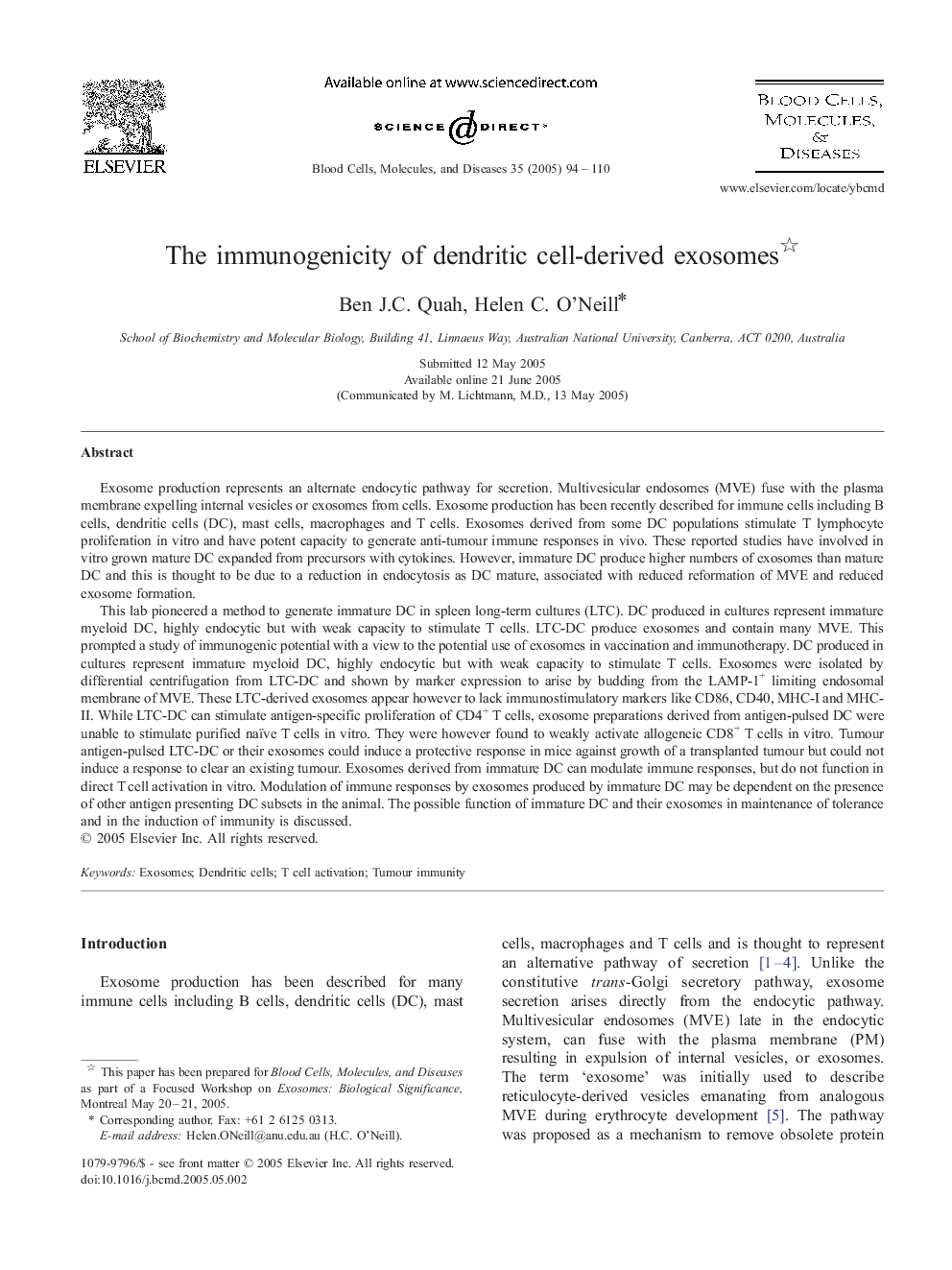| Article ID | Journal | Published Year | Pages | File Type |
|---|---|---|---|---|
| 9137530 | Blood Cells, Molecules, and Diseases | 2005 | 17 Pages |
Abstract
This lab pioneered a method to generate immature DC in spleen long-term cultures (LTC). DC produced in cultures represent immature myeloid DC, highly endocytic but with weak capacity to stimulate T cells. LTC-DC produce exosomes and contain many MVE. This prompted a study of immunogenic potential with a view to the potential use of exosomes in vaccination and immunotherapy. DC produced in cultures represent immature myeloid DC, highly endocytic but with weak capacity to stimulate T cells. Exosomes were isolated by differential centrifugation from LTC-DC and shown by marker expression to arise by budding from the LAMP-1+ limiting endosomal membrane of MVE. These LTC-derived exosomes appear however to lack immunostimulatory markers like CD86, CD40, MHC-I and MHC-II. While LTC-DC can stimulate antigen-specific proliferation of CD4+ T cells, exosome preparations derived from antigen-pulsed DC were unable to stimulate purified naïve T cells in vitro. They were however found to weakly activate allogeneic CD8+ T cells in vitro. Tumour antigen-pulsed LTC-DC or their exosomes could induce a protective response in mice against growth of a transplanted tumour but could not induce a response to clear an existing tumour. Exosomes derived from immature DC can modulate immune responses, but do not function in direct T cell activation in vitro. Modulation of immune responses by exosomes produced by immature DC may be dependent on the presence of other antigen presenting DC subsets in the animal. The possible function of immature DC and their exosomes in maintenance of tolerance and in the induction of immunity is discussed.
Related Topics
Life Sciences
Biochemistry, Genetics and Molecular Biology
Molecular Biology
Authors
Ben J.C. Quah, Helen C. O'Neill,
